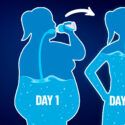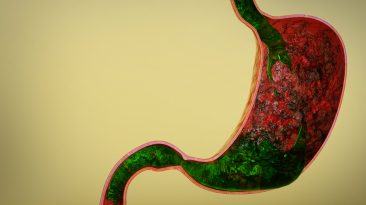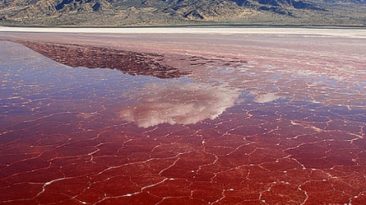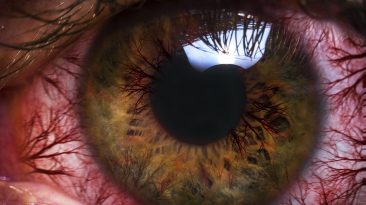Got a sweet tooth? Are you always looking forward to dessert? Double sugar in your coffee?
This sweet crystal is everywhere. It’s in our food, it’s in our culture, it’s in our DNA.
What would your life be like if there was no sugar in the world? Well, It would affect more than your cravings. It would change our history, our economy and even our bodies.
o, what would happen if it disappeared? And how did we get hooked on sugar in the first place?
We need sugar. No sugar means no life. Period.
Before we dig into what would happen if it disappeared, let’s define what we mean by “no sugar.” Sugar is made up of carbon, oxygen and hydrogen atoms, putting it in the category of carbohydrates, or more affectionately, “carbs.”
Now, Carbs get a bad rap, but there are some good ones, like those found in beans, whole grains, fruits and vegetables. These have vital nutrients to keep your body functioning.
Let’s try a “diet What If” and imagine that all those sugar-based carbs were gone. What would happen if we removed ALL sugar?
If sugar – all sugar – on the planet was instantly removed, we’d essentially be sucking our DNA dry. Slowly crumbling to dust, along with every other breathing life-form on the planet!
Without carbohydrates doing their job of releasing glucose, your body would start to look for different sources of energy. It will start consuming your fats, and your proteins. In effect, your body would be eating itself from the inside out!
Things would be “bitter,” to say the least. But carbs aren’t the type of sugar that inspired you to click on this video. Let’s talk about the disappearance of refined sugar.
The dominant force in the world of refined sugar production is sugarcane. In 2018, it was estimated that nearly two billion tons of sugarcane were produced globally. But what if it wasn’t?
Well, We could be looking at a world full of healthier people. In countries that rely economically on sugar-based carbs, you’ll find high levels of heart disease, diabetes and even cancer. Take refined sugar out of the picture, and you could look forward to less strain on the healthcare system.
And while it’s a matter of some debate, studies theorize that sugar is just as addictive as cocaine. With refined sugar removed from the world, problems like sugar addiction would be removed with it.
It would also help the environment. According to the World Wildlife Federation, there are a dozen countries that use 25 percent or more of their available agricultural land for the production of sugar cane.
This takes quite a toll on their ecosystems. On the flip side, losing income from sugar may throw some countries’ economies off balance.
Sugar supplies the world with 20 percent of the caloric content in people’s diets. Because of this, it is a dominating force in the global economy.
So how did we get hooked on sugar in the first place? Well, Our cave-dwelling ancestors didn’t start out munching on sugar-filled treats. But since the beginning, humans have been consuming sugar through fruit and honey, so your sweet-tooth is as old as humanity itself.
Large-scale sugar cane cultivation began in the 15th century. But the “sugar rush” really started in 1647, when sugarcane was exported from the Caribbean.
Elusive and expensive, it was seen as a luxury for the elite. Europeans went crazy for it, eating sugar until their teeth rotted out, just to prove to peasants that they could afford it.
Well, Less sugar generally means healthier people. The alternative would be to use artificial sweeteners. But you wouldn’t have free rein to drink all the diet soda you want. You’d still have to deal with aspartame, saccharin and sucralose, which have all been tied to weight gain.
This doesn’t change the fact that we need sugar to survive, but it is possible to ease our dependence on it. We can’t get rid of sugar completely, but what if we were to get rid of spices? Or just salt?
Sources
- “Good Carbs, Bad Carbs: What You Need To Know”. Cicetti, Fred. 2013. Livescience.Com. Accessed November 26 2019.
- “Global sugar cane production from 2016 to 2026 (in million tons)”. 2019. Statista. Accessed November 26 2019.
- “Evolutionary and Historical Changes in Dietary Carbohydrates”. YUDKIN, JOHN. 1967. The American Journal Of Clinical Nutrition 20 (2): 108-115. Oxford University Press (OUP). doi:10.1093/ajcn/20.2.108.
- “8 Big Lies About Sugar We Should Unlearn”. 2019. Healthline. Accessed November 26 2019.
- “What’s Eating At GDP? Sugar. | Morgan Stanley”. 2015. Morgan Stanley. Accessed November 26 2019.
- “Nonnutritive Sweeteners And Cardiometabolic Health: A Systematic Review And Meta-Analysis Of Randomized Controlled Trials And Prospective Cohort Studies”. Azad, Meghan B., Ahmed M. Abou-Setta, Bhupendrasinh F. Chauhan, Rasheda Rabbani, Justin Lys, Leslie Copstein, and Amrinder Mann et al. 2017. Canadian Medical Association Journal 189 (28): E929-E939. Joule Inc. doi:10.1503/cmaj.161390.
- “Is sugar really bad for you?”. Brown, Jessica. 2019. bbc.com. Accessed November 26 2019.
- “Sugarcane | Industries | WWF”. 2019. World Wildlife Fund. Accessed November 26 2019.


























